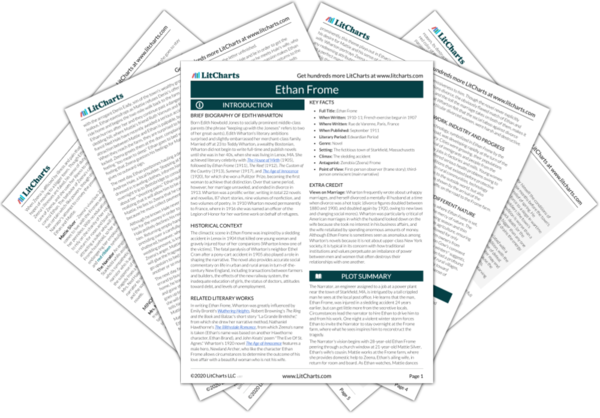As in many of Wharton's novels, Ethan Frome makes the case that traditional gender roles limit the potential of men and women, and destroy male-female relationships. Through Mattie, the novel critiques gender expectations that resulted in young women being raised to become nothing more than domestic servants and companions for men. Mattie is an example of a middle-class girl who was educated only to trim a hat, make molasses candy, recite poetry, and play the piano, accomplishments that would have helped her to attract a husband but were of little practical use when it came to earning a living. The novel also shows how the traditional division of labor in marriage resulted in women staying at home much of the time, occupied with dull household chores, while men were out working. In the novel, the isolation women suffer is literally maddening: Ethan's mother goes insane from loneliness. Through the passive aggressive "sickliness" that Zeena uses to control Ethan, and Ethan's own feelings of inferiority and revulsion for Zeena that result from his lack of control, the novel shows how traditional marriage sets up a destructive power struggle between man and wife. In fact, Ethan's attraction to Mattie depends in part on her submissiveness to him. Though the novel never explicitly mentions divorce, the obviously flawed match of Ethan and Zeena, and the toll the marriage takes on both of them, makes it clear that Wharton felt that the social taboo against divorce and, in particular divorced women, were harsh and destructive.
Gender Roles and Marriage ThemeTracker

Gender Roles and Marriage Quotes in Ethan Frome
"Oh, Ethan!" she cried.
"I don't know how it is you make me feel, Matt. I'd a'most rather have you dead than that!"
"Oh, I wish I was, I wish I was!" she sobbed.











